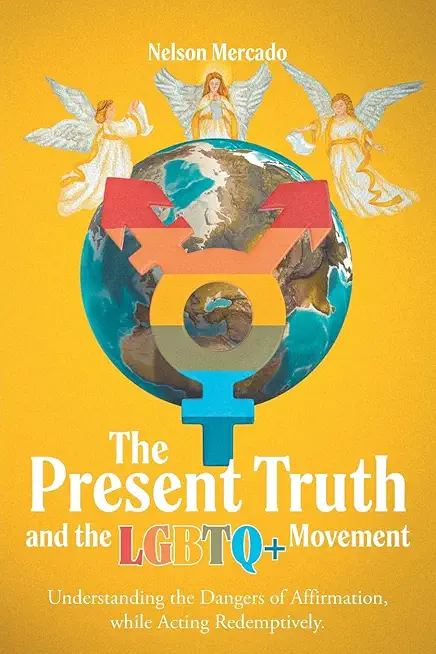
description
9Peanut Butter and Jelly. Jelly and Peanut Butter. They are ALWAYS together But when Peanut Butter starts hanging out with other friends, Jelly flips her lid.
This is a story about two friends--who act as their own problem-solvers and decide that they can explore new friendships while still preserving the one they have. This playful read-aloud book teaches kids that there's room for plenty of friendships in life.
Includes a Note to Parents, Caregivers, and Educators with more information about jealousy, and strategies for helping children cope with jealous feelings.
Peanut Butter & Jellyous ...sometimes friendships get sticky is part of the Books for Nourishing Friendships Series from Magination Press. Other titles in the series include Mac & Geeeez ...being real is what it's all about and Cake & I Scream ...being bossy isn't sweet.
From the Note to Parents, Caregivers, and Educators:
Peanut Butter & Jellyous is a playful story about dealing with jealous feelings in a friendship when two kids are best friends and a third child enters the mix. Jealousy can erupt in upset and anger, and become destructive to a friendship. The answer to jealousy in a friendship isn't always to be happy about a friendship of three. Sometimes this outcome works, and when it does all parties can benefit. Another developmental step in the land of friendships is being able to maintain the original friendship while also forming significant bonds with others separately, as Jelly learns to do in this story. Whatever the outcome, coming up with suitable solutions and coping skills when facing jealous feelings is important. The good news is there are ways we as parents and educators can help the children in our lives with these complex and sometimes painful feelings.
What is Jealousy?
Jealousy and envy are normal human emotions. And though the terms are often used interchangeably, they are not the same thing. Envy involves two people while jealousy involves a third person. With envy you feel that you are lacking something that someone else has, and
you want that thing. A child may envy another's skills, abilities, or characteristics--for example, how fast a classmate can run. A child may also envy someone else's things or experiences--for example, another classmate's trip to Disneyworld or new bicycle. With jealousy you feel a kind of threat that you could lose something or someone to another person. Your daughter might fear that her best friend likes another girl better than her, and fear being replaced. Jealousy also often emerges when a new baby arrives in the family, requiring lots of parental time; if an older sibling is getting attention for achievements or is allowed to do things like stay up longer at night; or when a parent, following a divorce, is dating others. In each case a young child can fear losing time, attention, and love. While Peanut Butter
& Jellyous focuses on jealousy in the context of a friendship, some of the strategies in this Note may be useful for dealing with other types of jealousy and envy as well.
This is a story about two friends--who act as their own problem-solvers and decide that they can explore new friendships while still preserving the one they have. This playful read-aloud book teaches kids that there's room for plenty of friendships in life.
Includes a Note to Parents, Caregivers, and Educators with more information about jealousy, and strategies for helping children cope with jealous feelings.
Peanut Butter & Jellyous ...sometimes friendships get sticky is part of the Books for Nourishing Friendships Series from Magination Press. Other titles in the series include Mac & Geeeez ...being real is what it's all about and Cake & I Scream ...being bossy isn't sweet.
From the Note to Parents, Caregivers, and Educators:
Peanut Butter & Jellyous is a playful story about dealing with jealous feelings in a friendship when two kids are best friends and a third child enters the mix. Jealousy can erupt in upset and anger, and become destructive to a friendship. The answer to jealousy in a friendship isn't always to be happy about a friendship of three. Sometimes this outcome works, and when it does all parties can benefit. Another developmental step in the land of friendships is being able to maintain the original friendship while also forming significant bonds with others separately, as Jelly learns to do in this story. Whatever the outcome, coming up with suitable solutions and coping skills when facing jealous feelings is important. The good news is there are ways we as parents and educators can help the children in our lives with these complex and sometimes painful feelings.
What is Jealousy?
Jealousy and envy are normal human emotions. And though the terms are often used interchangeably, they are not the same thing. Envy involves two people while jealousy involves a third person. With envy you feel that you are lacking something that someone else has, and
you want that thing. A child may envy another's skills, abilities, or characteristics--for example, how fast a classmate can run. A child may also envy someone else's things or experiences--for example, another classmate's trip to Disneyworld or new bicycle. With jealousy you feel a kind of threat that you could lose something or someone to another person. Your daughter might fear that her best friend likes another girl better than her, and fear being replaced. Jealousy also often emerges when a new baby arrives in the family, requiring lots of parental time; if an older sibling is getting attention for achievements or is allowed to do things like stay up longer at night; or when a parent, following a divorce, is dating others. In each case a young child can fear losing time, attention, and love. While Peanut Butter
& Jellyous focuses on jealousy in the context of a friendship, some of the strategies in this Note may be useful for dealing with other types of jealousy and envy as well.
member goods
No member items were found under this heading.
listens & views

SIBELIUS: SYMPHONY NO 2 & ...
by SIBELIUS: SYMPHONY NO 2 AND VIOLIN CONCERTO / VAR
COMPACT DISCout of stock
$17.49

HILLBILLY HOT ROD & AUTOMOBILE ...
by HILLBILLY HOT ROD AND AUTOMOBILE SONGS / VARIOUS
COMPACT DISCout of stock
$10.99
Return Policy
All sales are final
Shipping
No special shipping considerations available.
Shipping fees determined at checkout.





